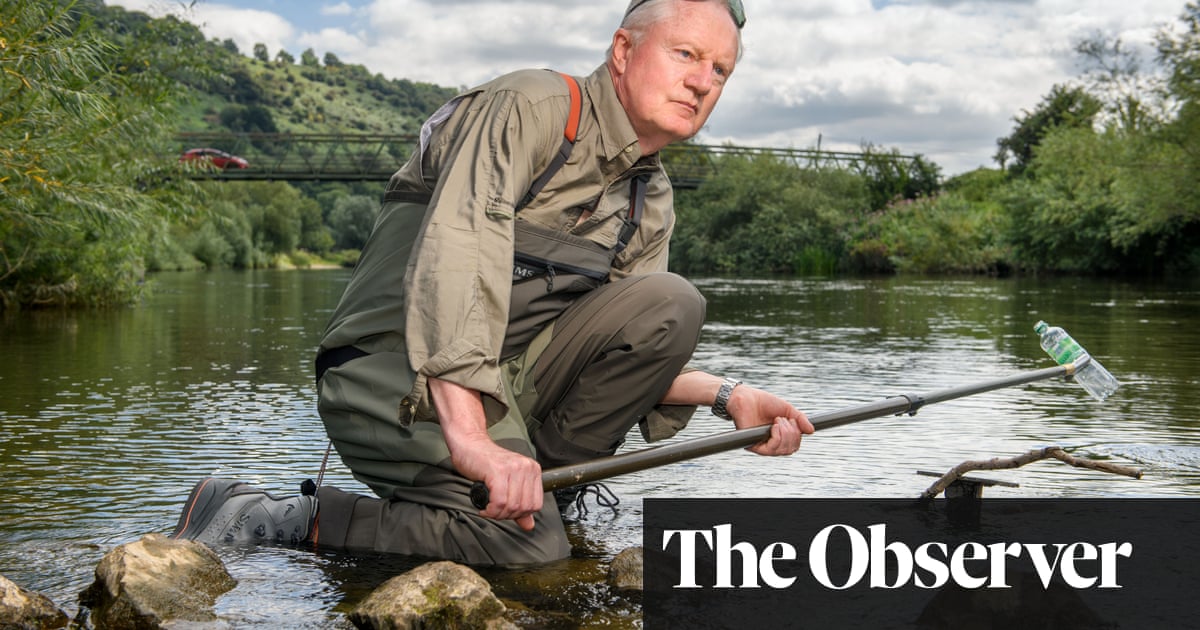A few times a week, a group of volunteers dotted along the Yazor Brook, which rises in a rural catchment and flows into the River Wye at Hereford, brave the brambles and muddy banks to take samples of the gently flowing water.
They conduct the tests on at least four sites along the brook and upload their results online. They are now among more than 200 citizen scientists who regularly test the River Wye from its source in the Cambrian mountains to the Severn estuary, compared with the sporadic testing by regulators.
…
Three years ago, campaigners sounded the alarm over the decline of the River Wye in England and Wales. They warned that phosphate-rich runoff from intensive poultry farms in the supermarket supply chain was sullying the Wye’s waters and devastating the ecosystem with the spread of thick algae blooms.
Natural Resources Wales blamed sunny weather for the proliferation of algae blooms. It said there was no evidence of a link between river pollution and intensive poultry units.
Furious campaigners were already counting the many millions of chickens being housed across the Wye catchments in the supermarket supply chain. The Brecon & Radnor branch of the Campaign for the Protection of Rural Wales mapped more than 760 chicken sheds containing more than 20 million chickens.
Vast quantities of manure were being spread across farmland and spilling into watercourses across the Wye catchment. In the face of a lack of effective action by the regulator, anglers, conservationists and local residents started to test the water.



This is the best summary I could come up with:
Cottringer, who is a member of the Herefordshire Wildlife Trust Yazor Brooks Restoration Project, said she started testing about two years ago after an appeal from the group Friends of the Upper Wye.
An analysis by the Observer this weekend of 256 freshwater habitats on 38 river systems which are sites of special scientific interest (SSSIs) found just 23 (9%) are in “favourable” condition.
They warned that phosphate-rich runoff from intensive poultry farms in the supermarket supply chain was sullying the Wye’s waters and devastating the ecosystem with the spread of thick algae blooms.
Gordon Green, 70, an angler and retired industrial physicist from Thornbury, Gloucestershire, works as an adviser on the association’s sampling regime and also tested farmland, showing that higher levels of phosphorus in the soil were close to poultry units.
He transports chicken litter from his 40,000 laying hens out of the country and has reed beds to help filter any runoff into the Frome, a tributary of the Wye which runs across his farm.
Natural Resources Wales (NRW) now acknowledges that poultry litter has caused pollution in the face of overwhelming evidence gathered by the citizen scientists, supported by university research.
I’m a bot and I’m open source!